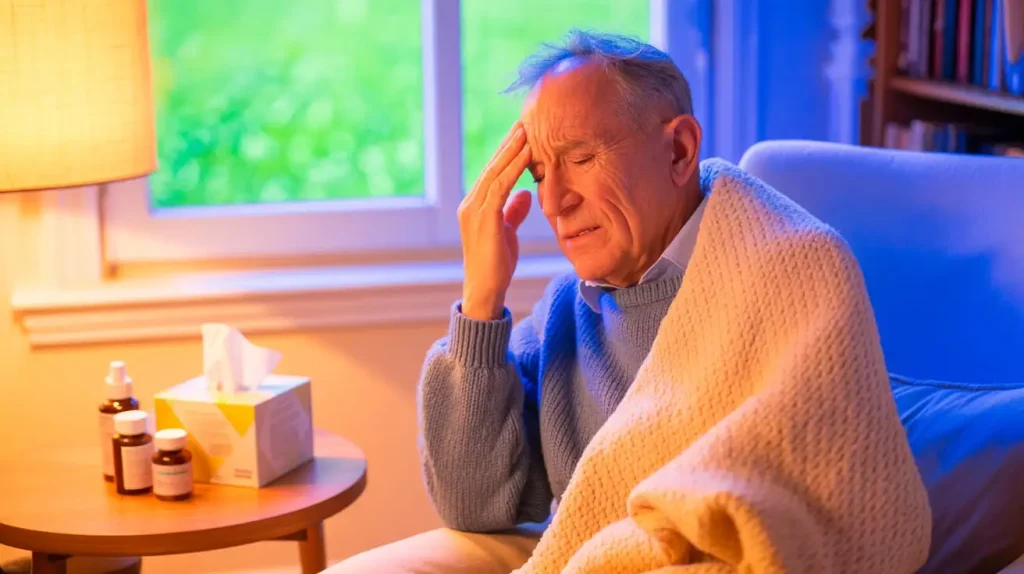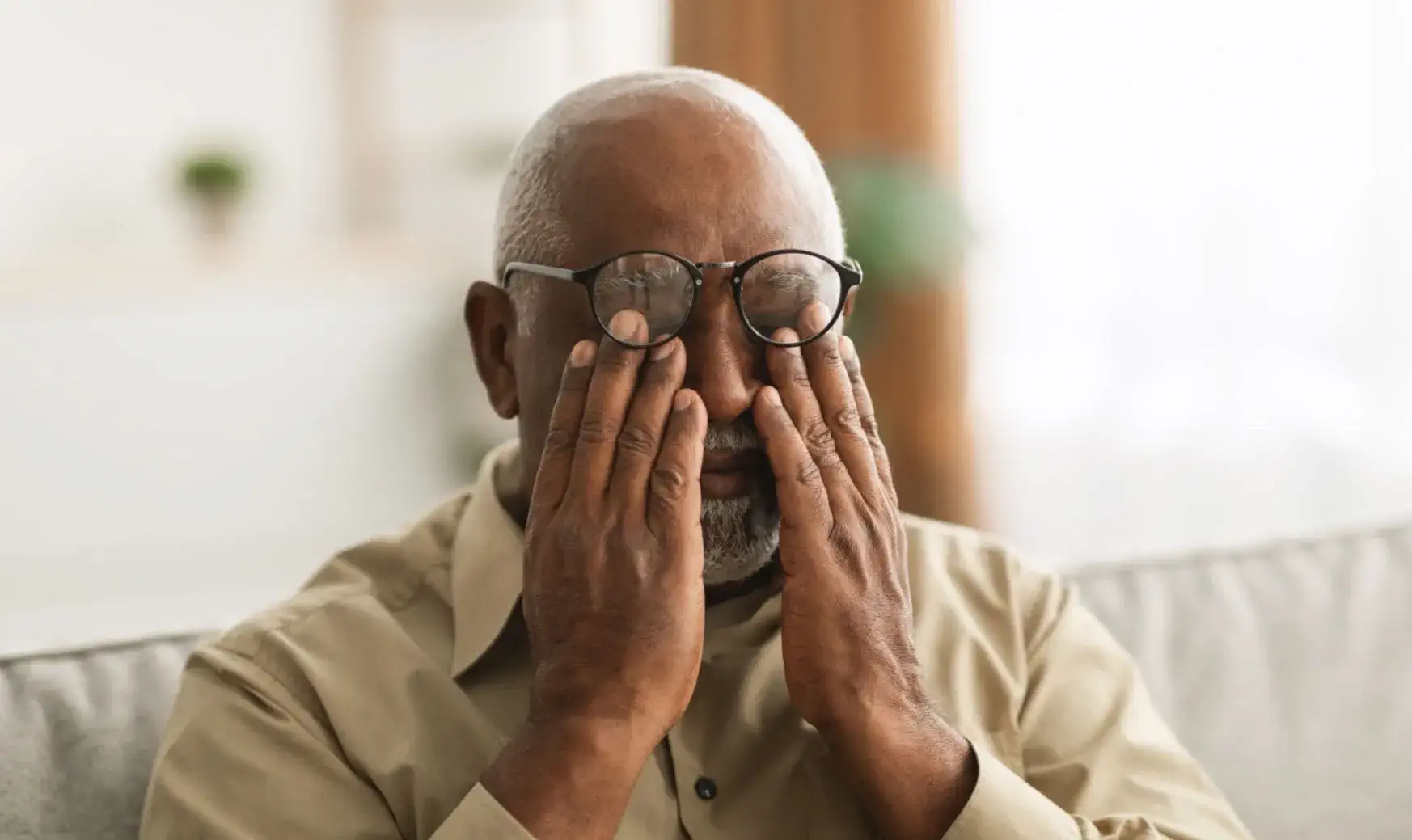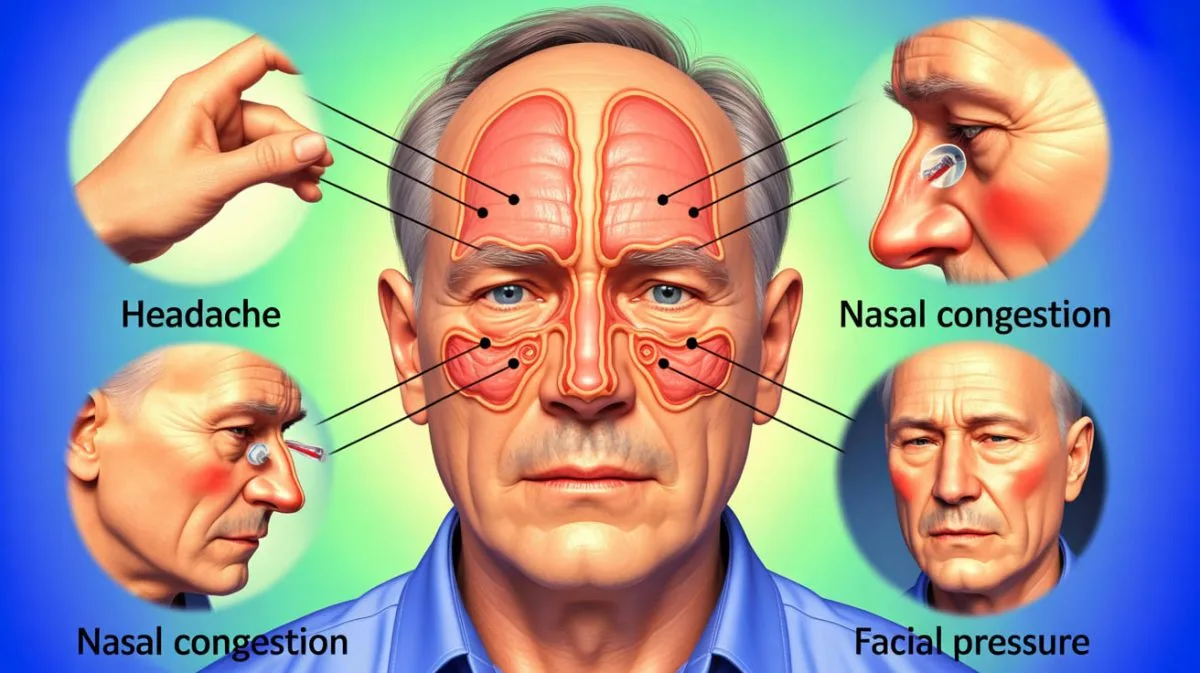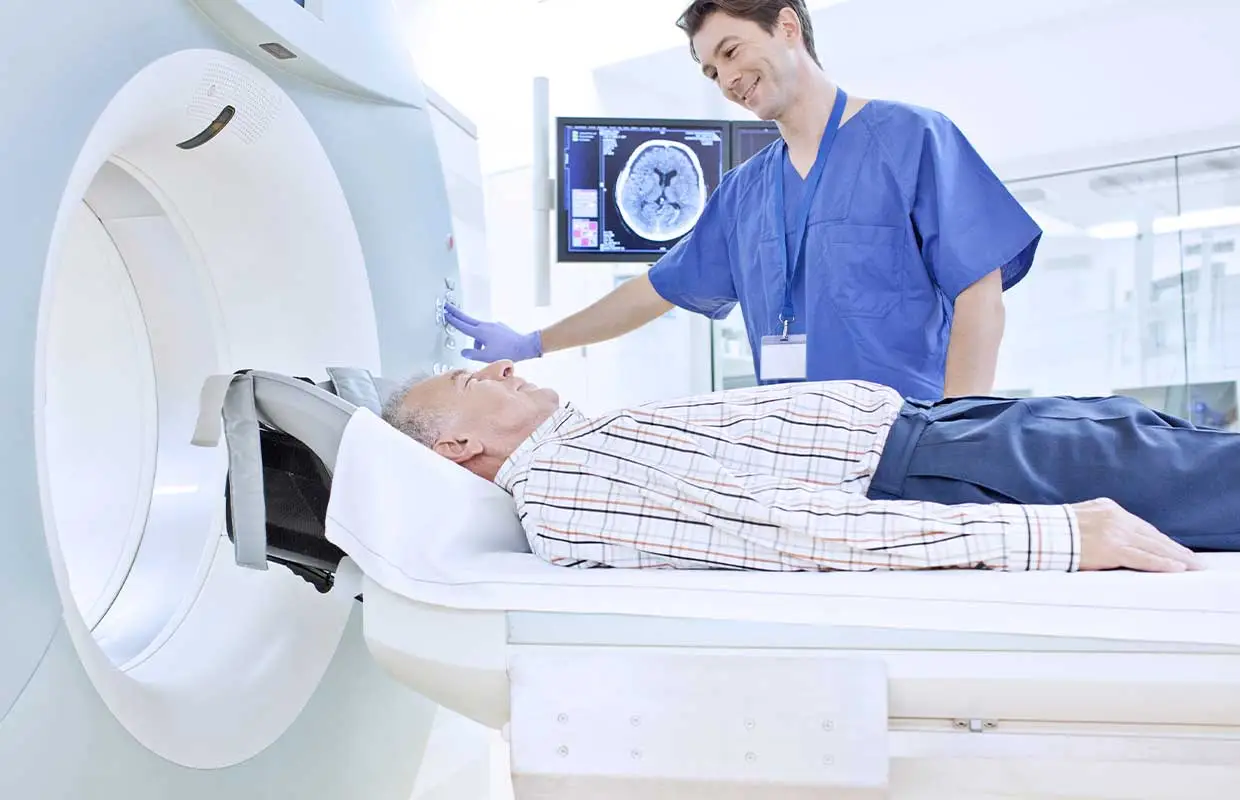
Sinusitis in the Elderly + Symptoms and Treatment
Sinusitis in the elderly is a common and worrisome disease that can affect the quality of life of this age group. This disease is accompanied by symptoms such as nasal congestion, headache, purulent discharge and a feeling of pressure in the face, and if not treated promptly, it may lead to more serious complications.
Given the weak immune system, the presence of underlying diseases and the greater sensitivity of the elderly, accurate diagnosis, appropriate treatment and continuous care are of great importance. The use of pharmaceutical methods, home remedies, traditional medicine and lifestyle modifications can be effective in controlling and preventing this disease. In this article from humanhealthmag, we will learn more about the symptoms and treatment methods of this problem.
What is Sinusitis?
Do you know what is meant by Sinusitis in the elderly? In general, the sinuses are air-filled cavities in the bones of the skull and face. Any factor that causes them to fill and become clogged with mucus or pus will cause sinusitis in the elderly. Because it is anatomically impossible to completely drain sinus secretions, sinusitis generally does not heal easily and in many cases turns into chronic sinusitis. Sinusitis in the elderly is an inflammation of the sinus tissues. This condition is usually caused by viruses, but bacteria and allergies are also effective.
Anyone from children to adults and the elderly, and everyone living in any part of the world, may suffer from sinusitis. The symptoms of this disease are very similar to the common cold. Sinusitis is an inflammation or infection of the sinus mucosa due to the invasion of pathogens such as viruses or bacteria. Infection within the sinus cavity may remain as an inflammation of the mucosa or may lead to the formation of pus and accumulation of secretions or even abscess formation. Meanwhile, antibiotic use among geriatrics to treat this disease can cause problems for older people.
Importance of Sinusitis in the Elderly
As we said, Sinusitis in the Elderly refers to inflammation or infection of the sinuses, which can be acute (short-term) or chronic (long-term). The sinuses are air-filled cavities located in the bones around the nose and their main function is to help humidify, filter the respiratory air, and lighten the skull.

In the elderly, the risk of developing sinusitis increases due to a weakened immune system, dry nasal mucosa, use of multiple medications, and decreased physiological function. The importance of addressing sinusitis in this age group is due to more complications, more difficult diagnosis, and a higher likelihood of developing its chronic form. Now the question is, why are the elderly more susceptible to sinusitis? The main reasons include the following:
- Weakened immune system: As we age, the immune response decreases.
- Dry nasal mucosa: Due to aging or the use of medications such as antihistamines and blood pressure medications.
- Use of dentures and structural changes in the face: Which can affect the sinus passages.
- Exposure to closed environments and inadequate ventilation: Such as nursing homes.
Types of Sinusitis in Senior
Sinusitis in the elderly can be divided into three categories. Acute, subacute and chronic. The classification depends on the duration of the disease. Acute bacterial sinusitis is an infection of the sinus cavities that are infected with bacteria. Sinusitis generally occurs after a cold, allergy attacks and when provoked by environmental pollutants in people and the elderly. Diagnosis and treatment of this disease, unlike colds or allergies, is with a doctor and requires antibiotics. The duration of acute sinusitis is less than 2 weeks from the onset of the first symptoms.
Symptoms of Acute Sinusitis
Symptoms of acute sinusitis include a feeling of fullness, pain or pressure on the sinus: Applying pressure with a finger on the affected sinus is accompanied by relatively severe pain. In acute sinusitis, unlike chronic sinusitis, there is a fever in the majority of cases. In severe cases, high fevers may be seen. Purulent discharge from the nose or back of the throat. Discharge is usually thick, dark, green or yellow. Discharge from the back of the throat is also seen with the same characteristics. Note that a sinus infection can also cause Loss of Balance in Elderly. Other symptoms of acute sinusitis include:
- Headache
- Congested nose
- Feeling weak and achy
- Reduced or lost sense of smell
- Swelling of the skin over the sinus area, which is present or more severe in some sufferers
Subacute Sinusitis
The duration of this Sinusitis in the elderly varies from two weeks to two months, and the symptoms of subacute sinusitis include a feeling of fullness or mild pressure on the affected sinus, sometimes accompanied by tenderness. The presence of nasal discharge on one or both sides, which is generally purulent and green or yellow in color. Mild fever, which is present in some patients. Generally, the severity of the fever is not high and is less than 38.3 degrees Celsius. Review of other symptoms of subacute sinusitis that sometimes occur in some people:
- Headache
- Body ache
- Nasal congestion
- Disorder of the sense of smell
- Chronic sinusitis
- If the duration of this disease exceeds 2 months, it is called chronic sinusitis

Symptoms of Chronic Sinusitis
The symptoms of this type of sinusitis in the elderly are generally misleading for both the doctor and the patient. Symptoms such as purulent discharge from the nose and continuous or intermittent discharge from the back of the throat are seen in most patients, but fever and pain on the sinus or tenderness or headache are generally absent. In chronic sinusitis, there is a uniform and mild inflammation in the sinuses that does not cause a feeling of fullness or pain in the affected area due to the continuous discharge of secretions.
Perhaps the only symptoms of chronic sinusitis can be considered discharge from the nose or back of the throat and loss of the sense of smell. Chronic sinusitis always occurs after acute and subacute sinusitis. Two causes can be assumed for its development:
- No treatment or inadequate antibacterial treatment in the first episode of sinusitis
- Anatomical or pathological causes that cause obstruction of the sinus passages
The second case occurs when the discharge from the sinus is not completely drained or the treatment has not been able to have a complete effect in eradicating the infection inside the sinus.
The Most Common Symptoms of Sinusitis in the Elderly
Symptoms of Sinusitis in the elderly vary depending on the type of sinusitis and the person’s physical condition, but usually include the following:
- Nasal congestion
- Headache or facial pain, especially around the cheeks and forehead
- Yellow or green nasal discharge
- Cough, especially at night
- Fever (in infectious sinusitis)
- Reduced sense of smell and taste
- Pressure or pain in the upper teeth
It should be noted that in addition to general symptoms, some other symptoms may also be seen in older people. Even these symptoms may be confused with other diseases of old age, which is why a specialized evaluation is very important. These symptoms include:
- General weakness and fatigue
- Dizziness or imbalance
- Changes in mood or onset of depression
- Loss of appetite
- Chronic dry cough without fever
- Sleep disturbances

How to Treat Sinusitis in the Elderly
Here are 6 ways to treat sinusitis in the elderly that can be done at home:
- Get enough rest to treat sinusitis in the elderly: Getting enough rest helps fight infections and speed up the healing of sinusitis in people and the elderly.
- Drink plenty of fluids: Drinking fluids such as water and fruit juice helps thin mucus and improve nasal drainage. Avoid drinks containing caffeine and alcohol. Alcohol can also worsen sinus and nasal congestion.
- Moisten the sinus cavities: You can use boiling water for this. Place a towel over your head and inhale the steam of boiling water. This will help relieve pain and drain mucus.
- Use a warm compress to your face: Place a warm, damp towel on the areas around your nose, such as your nose, cheeks, and eyes.
- Rinsing the respiratory tract: Rinse your respiratory tract with special solutions for this purpose. This helps to open the respiratory tract in people and the elderly.
- Use a higher pillow when sleeping: Keep your head higher than usual when sleeping to reduce your congestion.
Specialized and Advanced Treatments in Chronic Cases of Sinusitis in the Elderly
Delaying treatment for Sinusitis in the elderly can cause more pain and discomfort. In very rare cases, untreated sinusitis can cause brain abscess or meningitis and bone infection. In some elderly people who do not respond well to medical and home treatments, or who have chronic sinusitis, more specialized treatments are needed. These methods include the following:
Femoral endoscopic sinus surgery (FESS)
- This method is very common today and less invasive and involves cleaning the sinuses and opening their outlet passages using an endoscope. In the elderly, this surgery should be performed with caution and only if necessary, as it does not require anesthesia and has a relatively longer recovery period. It may also be more risky if there are underlying diseases.
The use of balloon sinuplasty
- is a newer, safer and more suitable method for the elderly. In this method, the sinus opening is widened and opened without incisions using a balloon. This method is often performed without the need for hospitalization.
Targeted imaging-assisted treatments
- In some special cases, topical or injectable medications are directed directly into the sinuses to achieve more effective treatment. This method is usually performed in specialized clinics.
Note that lifestyle plays an important role in preventing the development or recurrence of sinusitis in the elderly. For example, keeping the home humid, especially in cold and dry seasons, using a humidifier can prevent this disease. Avoiding cigarette smoke and chemicals is also very important, even indirect smoke can be harmful to the elderly. Adequate and regular sleep also plays an important role in the health of the respiratory system.
What is the Role of Certain Medications in Increasing the Risk of Sinusitis?
Many older adults take multiple medications for different conditions. Some medications can dry out the nasal mucosa and reduce mucus flow, which can lead to sinusitis. The most important of these medications are:
- Antidepressants (such as amitriptyline): They cause dry mouth and nose.
- First-generation antihistamines: They thicken nasal secretions.
- Antihypertensive medications (such as beta-blockers): Sometimes they affect the blood vessels in the nasal mucosa and reduce blood supply.
- Diuretics: They cause dehydration and dry out the sinuses.
Concluding Remarks
Sinusitis in the elderly is a relatively common but manageable disease. Timely diagnosis, proper treatment, attention to underlying diseases and a healthy lifestyle can prevent serious complications. Of course, you should remember that any chronic symptom, such as nasal congestion or headache, should not be ignored. Self-medication in the elderly can also be dangerous. Prevention is very effective with regular nasal irrigation, inhalation, proper nutrition and avoidance of smoke.
In addition, in case of complex or chronic problems, an otolaryngologist should be consulted. Ultimately, constant attention and care for the elderly with sinusitis will not only help treat the disease, but also significantly improve their quality of life.
Could you help us make this content even better? What do you love, and what can we improve? Share your thoughts below, feedback is the key to creating better content for YOU. If you also have an experience in this regard, please share it with us and others.

Frequently Asked Questions
When Should we See a Doctor for Sinusitis?
If symptoms persist or if there is fever, swelling on the sinus, severe headache, stiff neck, nausea and vomiting, drowsiness, or symptoms that are in favor of a lower respiratory tract infection, such as severe cough with phlegm, chest pain when breathing, shaking chills see a doctor.
Does Sinusitis Affect Sleep and Mood?
Sinusitis in the elderly can disrupt sleep. Nasal congestion, sinus pain, and nighttime coughing are major causes of insomnia. Chronic sleep deprivation can cause irritability, increase the risk of falls, and reduce quality of life. Research has also shown that chronic sinusitis can be associated with depression and anxiety in the elderly, as reduced oxygen supply to the brain and chronic pain negatively affect mood.
